#for the boleyn party
Explore tagged Tumblr posts
Note
The double standards for Anne and Mary compared to Jane and Mary always baffles me. So when Anne prioritizes her own child and safety she's a bitch, but when Jane does the exact same thing (when her child doesn't even exist yet) it's not only ok, it's ignored. Because thinking about it breaks the saccharine love show people are weirdly invested in. Anne fighting for Elizabeth's rights is treated like it doesn't matter, or played down completely to pretend she only wanted Mary recognizing her marriage because she's......evil? Idk. And she got a kick out of it? But Mary needing to do it for Jane is....ok? Right? Fair? It makes no sense when Mary fights against recognizing Anne she's so brave and her stans are outraged she ever be expected to "lower herself" but when she gives in later it's no big deal Henry and Jane demanding it? And whatever Mary went through during Anne's time was the sickest cruelty and all what Anne planned, but with Jane, it never happened, or it's suddenly all Henry and Jane.....was too nice to stand up to him? It's like Mary accepting she's illegitimate is horrific when it's for Anne but some boring i-am-not-a-robot check box task she's we've gotta get out the way when it's for Jane. Like if Mary had gone on resisting do they think Jane would've been cool with it?
Well, we don't really know if "Jane demanded it", actually given the contemporary evidence that seems unlikely (although tbf it's murky...in May 1536 Chapuys claims she's actually argued for Mary's total restoration, but in June 1536 there's another report from another source that she 'begged [the King] on her knees five times' to not arrest Mary--not 'restore her'-- which is often conflated with the former to do the same, by July 1536 Chapuys claims all she’s done is beg Henry not to arrest Mary, not restore her). Tl; dr if her opinion on this was drastically different from HVIII's at the outset, she seems to have conformed to his rather quickly, was more the point I was trying to make there.
but some boring i-am-not-a-robot check box task

*Forgot to address this one:
Like if Mary had gone on resisting do they think Jane would've been cool with it?
Yeah, that’s also sort of the thing, although apparently she did want Mary to resist anything but perhaps apology and HVIII to concede and reinstate her as heir. Whether she’d come to regret that, had it succeeded, when Jane had a son or daughter remains another question…
But yeah, anyways, I don’t think Jane would’ve been warm towards her had Mary refused to acknowledge her as Queen (which, if we take Mary’s Title Act seriously, was what she actually believed … although if you subscribe to Loades’ theories, it wasn’t what she believed then, but what she came to believe, and her conformity of the summer of 1536 was genuine ‘conversion’), called her ‘Lady Jane’ and the ‘King’s mistress’ as she had AB. Nothing is impossible but I don’t find that… probable.
Edit:
Just kidding, Chapuys’ report and the Bishop of Faenza’s were muddled in my memory, here we go:
This last wife is said to be much loved by the subjects, both because she is very gentle and good, and because she has five times thrown herself publicly at the King's feet, requesting him to send for his daughter and declare her Princess, a thing which has greatly moved the people.
Although, instructive that praise of Jane from this group (the above Bishop, Reginald Pole, even Chapuys to some extent) ebbs away once news travels that she hasn’t effected Princess Mary’s restoration, after all. The praise thus seems like it was rather conditional.
#anon#if jane actually demanded it behind the scenes then she definitely had everybody fooled#bcus there was no record of that#so like not impossible but i think unlikely....#mind there were really no parties as personally invested in her denouement and curbing her influence as there was#for the boleyn party#i doubt she was like this complete serene angel that never had any outbursts of temper...ever#it's just that if she did no one really.... cared#and in the context of an absolute travesty of justice whose indictment included LAUGHING AT HVIII'S CLOTHES AND POETRY AND MUSIC.......#flattering hviii became more vital than ever before and as such you had to flatter his choice of wife#as for the second report if it's true he ignored her -- it says 'rudely rebuffed' --#which speaks to such a minimal influence in intercession#that it's hard to understand why she thought the same for the monasteries would be effectual in october 1536...but i digress
5 notes
·
View notes
Text
rip katherine howard you would've loved brat summer
#wolf hall#thomas cromwell#mark rylance#katherine howard#jane seymour#anne of cleves#catherine parr#catherine of aragon#anne boleyn#mary boleyn#thomas culpeper#tudors#henry viii#tudor era#tudor history#tudor england#charli xcx#brat#365 party girl#brat summer#she was#17/18??#when she died??#should've been at the club#this is her invitation to haunt me . we should get brunch and shit talk our exes.
13 notes
·
View notes
Text
Spoiler alert

So... They're doing okay
#six musical#six fanfiction#anne boleyn#katherine howard#everything's fine folks#kitty wants to sleep#anne wants to party#:)
14 notes
·
View notes
Text
Was it totally dropped, tho? The poison pen drawing, at least, is picked up:
‘How little you know of our lives,’ she says. ‘The lives of women, I mean. I have been alone for years.’ ‘You must forget those days. No one speaks of Anne Boleyn. No one thinks of her. You must be jocund and pleasant and adapt yourself to the new queen, or you will be sent away again, and I shall not speak for you.’ ‘Jane Seymour will not send me away. I know what she is. I know a thing about her.’ […] Jane Rochford smirks. ‘It is not what you think. No one wanted Jane in their bed, she was too cold a fish. It is another thing, that I know – I know her method. I witnessed everything that she worked against Anne, maid against mistress. You will remember a day when Anne took fright because she found a paper in her bed? A drawing of a man crowned, and beside him a woman without a head?’ [...]
He says, ‘Jane did not do it, she does not speak the French tongue.’ ‘Everybody speaks that much.’ She laughs at him. ‘Do you know, I believe all these years you have been thinking it was me?’
It wasn't explicit, exactly, but I always found this following scene in TMATL to be its continuation:
He answers a summons from Jane the queen: finds her with a book in her lap, a Book of Hours. He thinks, I know that volume. It belonged to the other one. Jane holds out the book. ‘This is hers, Anne Boleyn’s. She and the king passed it between them. The king has written an inscription, under the Man of Sorrows.’ He takes the book from her. Christ is kneeling, his flesh gory from head to heels, each bleeding cut fine as a wire. The picture is set within a border of peapods and ripe strawberries: the king has written some lines in French. ‘Lady Rochford has kindly translated it for me,’ Jane says. ‘I am yours, Henry R, forever. And then she replied to him.’ He cannot see the reply. ‘Look under the Annunciation,’ Jane says. ‘She had hope, of course, in those days. She thought she could bear a son.’ He finds the picture. A coy virgin with lowered eyes is getting good news: the angel of the lord is right behind her. Jane recites, ‘By daily proof you shall me find/To be to you both loving and kind. Do you think she was kind to him?’ ‘Not often.’
We've lost the impact of the scene somewhat, in the adaptation...I always thought it was significant that she said Lady Rochford was the one that translated it for her. It suggests she's needling her.
There's another scene in Bring Up the Bodies, where Jane says something to the effect of no one will blame her for what has happened to Anne Boleyn, she was the author of her own misfortunes, a woman cannot do what she has done and live. This is its continuation: she was 'unnatural', she wasn't 'kind' (ie, submissive enough) 'to [her husband]', so she deserved what happened to her, it's, well...Dworkin comes to mind: "Right-wing women have surveyed the world: they find it a dangerous place. [...] They see that creativity and originality in their kind are ridiculed; they see women thrown out of the circle of male civilization for having ideas, plans, visions, ambitions. [...] They try to up their value: through cooperation, manipulation, conformity; through displays of affection or attempts at friendship; through submission and obedience; and especially through the use of euphemism—“femininity, ” “total woman, ” “good, ” “maternal instinct, ” “motherly love."
Tl; dr, I believe there were connections bridging this character's arc, I just don't think they're being properly demonstrated in the adaptation, so far. Kominsky has made her more sympathetic: 'the late (last) Queen, God rest her', in reference to her predecessor, Jane Seymour as she is characterized in these books would never say that.
Also while his scenes with Jane in the novel of TMATL are less intimate and less frequent that the previous, I viewed that as indicative of her status change...Jane being queen brings a new formality to their interactions, so when he observes her in TMATL, it's as if through a thick plane of glass.
As a middle aged person, I think that there is probably nothing more relatable in the Cromwell books than the comedy of errors that is his supposed love life...Everything is deliberately ambiguous. Everyone or no one could actually fancy him. Every one or no one legitimately flirted with him. By the third book, you have the sense that he has entirely given up on ever having any kind of romantic/sexual relationship with anyone because he just assume shit's not gonna go his way.
And the narrative keeps putting him in SITUATIONS.
Some people find this tasteless, creepy, etc. and that is their right. I also think they completely miss the point about subjectivity that the author is trying to make...
#is jane boleyn meant to be a credible character?#a bitter one but a credible one#idt mantel could walk that back really#george and anne hooking up was meant to be credible. it's mentioned by a bargeman before it's mentioned by JB#and cromwell rewards the...'intelligence'. he entertains bryan's explanation of their alleged incest#chapuys' reports are dismissed as 'gossip'-- until the most explosive of them (anne will poison her stepdaughter)#is confirmed by jane boleyn...#the report about anne shelton is affirmed by anne shelton herself. etc#tmatl spoilers#and i've used massage myself to describe this but maybe it's not the correct term.#more like...rearranged? the primary sources? idk#honestly not intending to be contentious; just that i read both of these semi-recently so they're fresh#but is it dropped? really? or is that she just...yk. dies#and anne died. so where is that momentum to go? who is she going to work against? she was against#what anne stood for (presumably) and madge is just a distraction for him. she doens't seem committed to a 'party'#so jane mentions her in this scene but doesn't seem to bear her animosity#as she suggests...she doesn't get any pleasure with henry. so it's doubtful she envies her#there's not a suggestion it hurts her pride#just a worry she might truly not conceive bcus of that#since that was the prevailing medical opinion at the time
70 notes
·
View notes
Note
Hello, can you do a headcannon Yandere (father) King Henry and Yandere (mother) Anna Boleyn with their only surviving son?
❝ 👑 — lady l: I really like the idea of them being platonic yanderes for a son, so I hope you like it! Forgive me for any mistakes and good reading! ❤️
❝tw: obsessive and possessive behavior, overprotection, mention of miscarriages, murder and implied cheating and toxic relationships.
❝👑pairing: platonic yandere!henry viii/anne boleyn x son!reader.
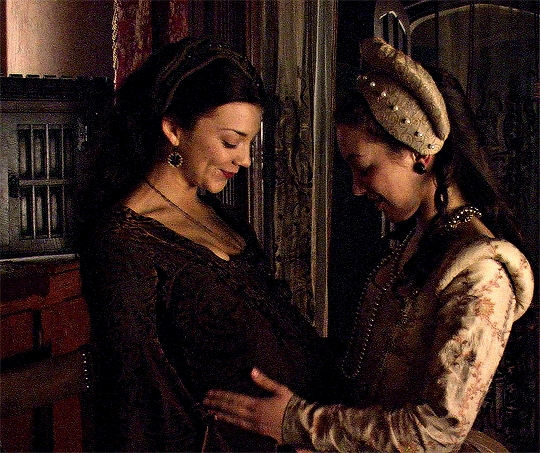

Anne was desperate to conceive a male heir, her only hope of staying alive and maintaining the interest of the King who, after some miscarriages and the birth of a daughter, has already began to wander towards one of her ladies-in-waiting.
So when she discovered a new pregnancy, she desperately prayed for a son and that she wouldn't suffer another miscarriage. She could not bear the loss and pain. Henry was pleased with the new pregnancy, but worried. Anne had already had several miscarriages and was only able to produce one healthy child, a daughter.
Anne took great care of herself during her pregnancy, taking care of what she ate and drank and trying to maintain good health. The first few months were the most tense, with fear enveloping both Anne and Henry. As the pregnancy progressed and there was no miscarriage, Anne became more confident.
When the day finally arrived to give birth, she was anxious. Henry was also anxious and he was so nervous when he heard Anne screaming outside the room, he didn't know what to think. When a baby's cries finally came after what seemed like hours, he entered the room.
Anne held her baby on her lap and cried softly and when a doctor approached Henry and said, "Congratulations, Your Majesty. You have an heir", it was the first time that Henry felt complete happiness. When he picked you up, he was smiling from ear to ear. Not only were you the much-desired male heir but you also saved your mother's head.
Both of them would be extremely overprotective of their only son and those close to you will be scrutinized. Henry has become very paranoid about your safety and takes every precaution possible.
You are always by your mother or father's side, you cannot be alone at any time with a stranger. Anne, especially, would like to keep you sewn to her side all the time. She cares about you a lot and is always checking up on you. When you get sick, she becomes paranoid that you will die.
You are your parents' greatest pride and Henry doesn't try to hide it. He neglects all his other children and gives you all his love and affection. He takes you for walks, hunting and spoils you with all the perks that a future King deserves. In addition to showing you off before the Court. After all, you are the future King.
They are both very proud of anything you do. Any milestone, no matter how small, will be applauded by them. Your first words, the first time you walked and everything else will be treated with great celebration. Expensive parties are thrown in your honor all the time.
As you grow up, they become even more overprotective and controlling. Anne does not want you to leave the Court under any circumstances and Henry allows you to do so, but only with many guards. There were many threats lurking and they couldn't let anything happen to you. May God forbid anything from happening to you as the results will be disastrous.
Anne hates it when you spend time with other people, especially if they are women. The only women you need in your life are your mother and your older sister, Elizabeth. Although she understands that's a part of a man's life, she still doesn't like it and any potential mistress or love interest will be dealt with quickly. She is your mother, so no one has more right to you than her.
Henry is more than aware of his wife's actions and although he doesn't encourage them, he doesn't reprimand her. In fact, he's probably the one who encourages you to enjoy your life even if it always leads to fights with Anne. It was worth it when you looked happy. And your happiness is very important to him.
Your potential friends will be scrutinized and if your parents don't like them, they will leave. Henry and Anne won't sentence them to death at first, but if you or they are stubborn, they will be tried for treason. Don't you understand that you shouldn't trust anyone other than your own family? Your parents are the only ones who want the best for you.
Henry and Anne are smothering and protective parents but they only have your best interests at heart. They want you to live a full and happy life, but with them by your side. You were everything they both wanted and they would be damned if they let anything happen to you. England still does not know the fury of its monarchs nor the overwhelming love they feel for their only son.
#yandere history#history#the tudors#yandere historical characters#yandere the tudors#yandere henry viii#yandere anne boleyn#Platonic yandere henry viii#platonic yandere anne boleyn#x male reader#headcanons#yandere headcanons#henry viii#anne boleyn#platonic yandere
715 notes
·
View notes
Note
Hello! My final for my AP World Cultures is to create a dinner party with people from history + some random people I wanted to throw in. Part of the assignment is to create a conversion with the people at the table and to include 3 questions and answers for them! So you’re at at table with King Henry VIII and his 6 wives! Is there possibly anything interesting you’d like to say to them? (I was told I’d get extra credit if I could convince you to answer lol)
As an extra incentive, here’s the completely unprofessional paragraph I wrote to explain where I put you in the seating arrangement :)

Honestly, there's nothing I'd want to do except listen to the six wives talk to Henry, and talk about Henry in his presence, so I'd ask questions like "So, what do you all feel was the worst part of being married to Henry?" (in the knowledge that Anne Boleyn and Catherine Howard would win when they said "being killed by him" but watching Henry squirm awkwardly to every answer would be a delight) and suchlike conversation starters. And then I'd chat to you when the Tudor recriminations became too much.
1K notes
·
View notes
Text
soc characters as six queens
Wylan Van Eck - Anna of Cleves. She got rejected for being too ugly. He got banished because he couldn't read. Do i even need to elaborate? Her song (esp her verse in six) could literally be rewritten to suit Wylan like
What a shame yeah my face, it cost me the crown (his dyslexia costing him the Van Eck fortune) So I moved to the Haus Of Holbein! In my hometown (Ketterdam) His mates were super arty, but I showed them how to party (the crows) Now on my tour of Prussia, everybody GETS DOWN (basically a statement to Van eck and all the people who has ever disrepected him for not being able to read. the equivalent of Haters back off)
Jesper Fahey - Jane Seymour. Jane knows Henry might not love her if it weren't for her son. Jesper knows his father might love him more if he wasn't Grisha, if he didn't have the one thing that took the love of Colm's life away. Jane loving Henry anyways despite. Jesper doing the same with his father. *SOBS*
Matthias Helvar - Catherine of Aragon. OH. GODS LIKE. "you must agree that baby in all the times i've been by your side (Fjerda). "I've never lost control (never questioned), no matter how many times i knew you lied (no matter how many times he saw the faults and barbaric teachings of Fjerdan ideologies). "If you can just explain A single thing I've done to cause you pain, I'll go" *silence* (Fjerda pulling a King Henry and banishing Matthias) . NOooooo. WAY.
Nina Zenik - Anne Boleyn. PURE VIBES. . LIKE I CAN easily imagine nina going "LIKE WAHT WAS I MEANT TO DO?" When Matthias confronted her about Hellgate. Then going "LIKE OMG GUYS HE ACTUALLY WANTS TO CHOP (//choke) MY HEAD OFF" when matthias tried to kill her. Plus, "grew up in the French court" (nina grew up in the Royal Palace), "life was a chore so she set sail" (went to the borders)
Inej Ghafa - Katherine Howard. Kaz and Inej's could easily switch. I mean, although Katherine suits Inej more, with the "all you wanna do" motifs going on, it could also be reinterpreted for Kaz as all they (Pekka) wanted to do was milk him of his money. Either way they get sold/manipulated for something and ended up suffering for it. For Inej it was years of abuse and sa. For Kaz it was loosing his brother and learning how to survive Ketterdam alone.
Kaz Brekker - Catherine Parr. Again, could easily be switched with Inej with the "I'm much more than my trauma, I fought for (in Catherine Parr's case, women's education,..etc)". Inej going on to becoming more than the Menagerie girl she was forced to be (a slaver hunter, the Wraith..etc). Kaz going onto be much more than the scared naive little boy he once was.Although this also could easily go for all the crows, I feel like it suits Kaz and Inej more, since their trauma and backstory is more or less prominent and relates to hers more.
#soc#soc ck#soc fandom#kaz brekker headcanons#inej ghafa hc#kanej#the wraith#six of crows#the six of crows#six of crows duology#crooked kingdom#kaz brekker#kazzle dazzle#inej ghafa#jesper fahey#wylan van eck#wylan van sunshine#wylan hendriks#nina zenik#the corspe witch#matthias helvar#the grishaverse#grishaverse#soc duology#the crows#wesper#helnik
35 notes
·
View notes
Text
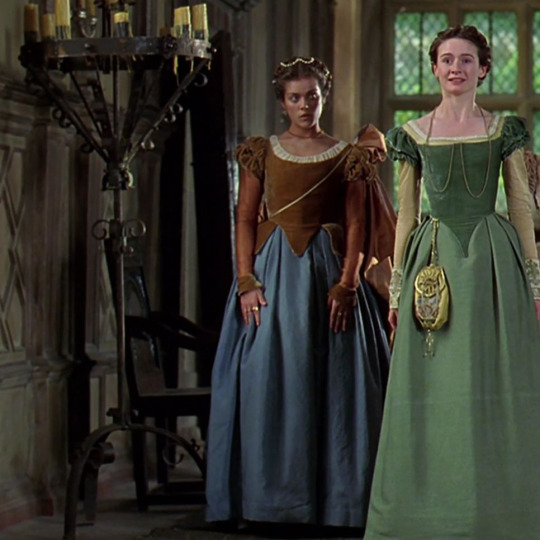
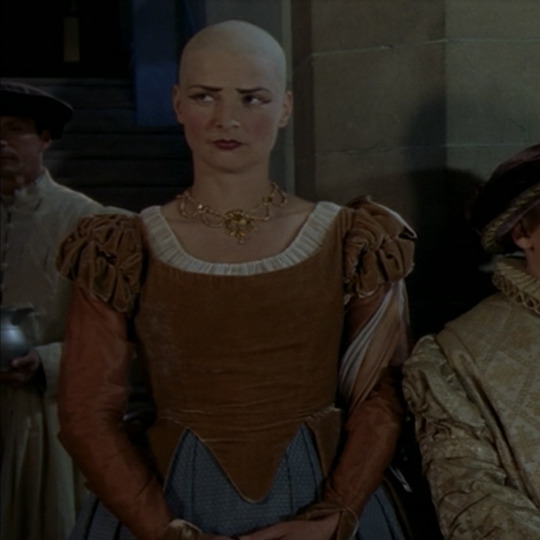
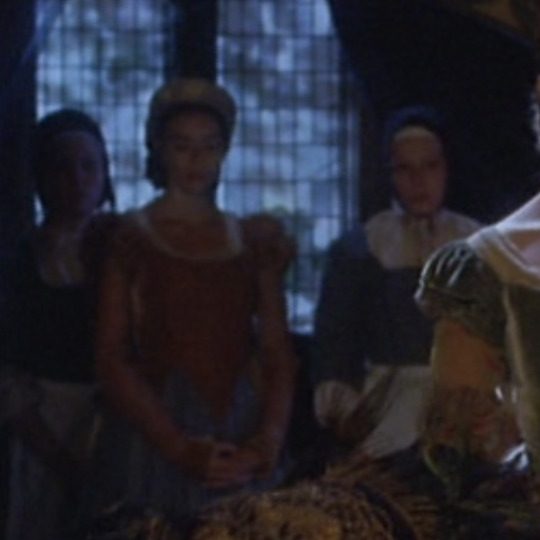
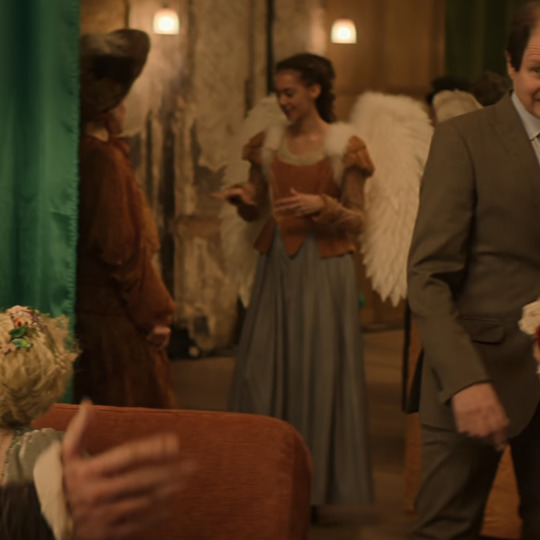
Alexandra Byrne designed this beautiful gown for the 1998 film Elizabeth, where it was worn by one of Elizabeth’s ladies in waiting.
In 2000, it was worn in The Royal Diaries: Elizabeth I – Red Rose of the House of Tudor by Susan Sheridan as a character in the novel referred to as Jane the Bald, who in life was likely Jane Foole, the fool who served both Mary and Katherine Parr, and may have been featured in the painting The Family of Henry VIII. The appearance of the costume in this production is the only time we are able to see the pattern on the blue skirt.
In 2003’s Henry VIII, the costume was seen again by a lady in waiting to Anne Boleyn before finally appearing in 2023’s Love At First Sight on a party guest.
Costume Credit: Mim, Katie S.
Follow: Website | Twitter | Facebook | Pinterest | Instagram
#Love At First Sight#Elizabeth#The Royal Diaries: Elizabeth - Red Rose of the House of Tudor#lady in waiting#susan sheridan#Henry VIII#costume drama#period dram
258 notes
·
View notes
Photo

Edward VI of England
Edward VI of England reigned as king from 1547 to 1553 CE. Succeeding his father Henry VIII of England (r. 1509-1547 CE), Edward was only nine years old at the time and so the kingdom was ruled by a council of nobles, foremost among whom was Edward's maternal uncle, Edward Seymour (l. c. 1500-1552 CE) until he was replaced by John Dudley, the Earl of Northumberland (l. 1504-1553 CE). During Edward's reign, Protestant religious reforms continued as the Church of England broke further away from the traditions of the established Catholic Church directed by the Pope. There were also popular uprisings as the economy faltered and inflation was rampant. Edward's reign was short as he died of tuberculosis aged just 15. He was succeeded by his cousin Lady Jane Grey (1537-1554 CE) until what the majority of the people and nobility regarded as the rightful heir, his elder half-sister, was installed nine days later as Mary I of England (r. 1553-1558 CE).
Henry VIII & The Succession
Henry VIII married six times but it was his first three marriages that each produced a future monarch. With Catherine of Aragon (1485-1536 CE), Henry had a daughter, Mary (b. Feb. 1516 CE). With Anne Boleyn (c. 1501-1536 CE), there was another daughter, Elizabeth (b. Sep. 1533 CE). With wife number three, Jane Seymour, who was a lady-in-waiting at court, Henry had his first and last legitimate son, Edward, born on 12 October 1537 CE in Hampton Court Palace. At the joyous news, there followed 2,000 cannon shots let off in the Tower of London, bells rang out across England and there were 24 hours of parties and feasts but, tragically, Jane died 12 days after giving birth, most likely from post-natal fever.
As the first marriage was annulled to permit the second and Anne Boleyn was executed on charges of adultery, so each of their children was disinherited and it was Edward who became the official heir to the throne. As more wives came and went and no more children were forthcoming, Henry changed his mind in 1544 CE and declared that Edward could be succeeded by his half-sister Mary with Elizabeth next in line.
Henry VIII's health declined rapidly in his later years as the king became seriously overweight and suffered a badly ulcerated leg. The king died on 28 January 1547 CE at Whitehall Palace in London; he was 55 years old. Henry was buried in Saint George's Chapel at Windsor Castle, next to his late third wife, Jane Seymour, and he was duly succeeded by Edward who became Edward VI at his coronation in Westminster Abbey on 20 February 1547 CE. Henry, having split the Church in England from Rome to acquire his first marriage annulment and gone on a massive spending spree on palaces and wars, left his son an impoverished kingdom split over religious issues and, particularly, whether or not to press on with reforming the Church.
Continue reading...
24 notes
·
View notes
Note
I read through all your posts about Alysanne Targaryen as Maegor's daughter and am now in a rabbit hole. Thank you. I've been thinking about Maegor's wives and which one of Henry VIII's wives they represent. Ceryse is Cathrine of Aragon and Alys is Anne Boleyn. The others are hard to pin for me since there isn't a lot. What do you think? Would Maegor's reign have been more interesting if his marriages had more similarities to those of Henry VIII?
I think this is where we run into a number of problems regarding the way GRRM wrote Fire & Blood specifically and the way he setup Westeros more generally.
For one, the fairly homogenized nature of southron culture as well as the oversimplification of religious institutions and history means you can't quite get the same dynamism as from real life European history, with its dizzying array of languages, cultures, cuisines, fashions, etc., to mention nothing of the then-ongoing Protestant Reformation. I suppose GRRM could have had Maegor convert to the Old Gods a la Julian (II) the Apostate or the Drowned God (you just know the Ironborn are the one race on the surface of Planetos that would say King Maegor the Good with a completely straight face) or even R'hllor, which would be the best choice in terms of worldbuilding opportunities in my opinion.
Moving on, we run into a handful of problems with Maegor specifically, one of them being the length of his reign. Look, while I can't deny Maegor ruling for 6 years and 66 days is incredibly cheeky, it also isn't anywhere close to Henry VIII's 36 years as king. With so little room timeline-wise, there isn't a lot of flexibility when it comes to telling new stories and fleshing out preexisting ones and all that is before you factor in Maegor himself.
I won't hold back. For all GRRM's talk of moral ambiguity, the human heart in conflict with itself, good men who were bad kings and bad men who were good kings, etc., his Targaryen monarchs are, for the most part, numbingly one-note. Aegon I is a literal enigma, Aenys is weak, Maegor cruel, Viserys I a party animal, Aegon II and Rhaenyra mirror-images of each other in their disqualifying vices, etc. As I've written before with my post reimagining Maegor as more of a Ivan (IV) the Terrible figure there was room to make him a genuinely controversial figure of historiography but instead GRRM doubled down on sensationalism and apathy-inducing slasher porn for lack of a better word. The fact Maegor is also the first and last of Visenya's line just adds more salt to the wound but that's part of GRRM's more general (and for me personally, vexing) habit of keeping family trees incredibly small.
(I do recall another alternative someone once brought up to the late Steven Attewell. Namely, turning Maegor into the Westerosi version of Macbeth by way of Der Untergang.)
This brings me to my semifinal point. GRRM didn't have to write Fire & Blood as Procopius' Secret History on steroids with a dash of Suetonius' Lives of Twelve Caesars and I, Claudius (the entire Saera episode is practically lifted wholesale from the scandal that envelops Augustus' daughter, Julia) but he did, which is doubly disappointing because not only does the final product suck quality-wise as a result but also because there were so many other avenues available to him.
He could have written Fire & Blood as a proper history (with less focus on the sex lives of teenage girls for one) or as a mirror for princes or as a dialogue between two characters or even as a character study. You can even see GRRM struggling with the constraints imposed by his use of Gyldayn in certain sections like the death of Maelor and the entire Hour of the Wolf episode, where you get reams of dialogue and characterization as well as more traditional narrative trappings like build-up, mood setting, etc.
Now, to answer your actual question (lol), I don't think any of Henry VIII's other wives map well onto Maegor's. Tyanna is, more or less, his female counterpart in terms of cruelty and zero redeeming features and entirely a fantasy construct. Elinor and Jeyne are both married to Maegor for only a year (with poor Jeyne dying in childbirth because Jeyne Westerlings, like the Brackens, Peakes, and Florents, cannot catch a break in Westeros) and before said marriage takes place neither appears on the page. As for Rhaena, well, credit where its due, she was a rare (and unexpected) highlight of Fire & Blood.
Thanks for the question, anon
#maegor the cruel#house targaryen#asoiaf criticism#asoiaf meta#valyrianscrolls#asoiaf#asoiaf themes#maegor targaryen#fire and blood#volume 1
45 notes
·
View notes
Text
the day hotd antis/fire and blood purists accept f&b was an inherently biased third party recounting of the dance from years after it had already happened and therefore shit is made up or doesn’t translate one to one with hotd is the day i die happy. people still in the modern day debate what year anne boleyn was born ffs historians get shit wrong and fill in the gaps with their own opinions all the gd time
#obviously f&b wouldn’t go in depth with alicent’s struggles and insecurities with motherhood#it’s a historical account?#or how blood and cheese happened#or each individual characters’ personalities and values#you can have issues with hotd but it being an ‘unfaithful’ adaptation to a subjective story is…stupid!#house of the dragon#hotd#i’d hardly call phillipa gregory a historian but look at how blatantly biased her tudor works are 😭
9 notes
·
View notes
Text
i feel like they basically tried to transpose the storyline/dynamic btwn coa and mary boleyn from tobg in tsp (with coa and bessie blount) and realllly overdid what was already well-done and entertaining.
#im gonna be honest — pgreg has a way more entertaining style of writing than EF and who else was it . graham?#also had they stuck with that alba galocha would have done it MUCH better .#i mean same with tcp. if im being honest …#but the majority of the novel of tcp is her marriage with Arthur and they did noooot follow that model at all#hviii in that book is just the runner-up. he idolizes her but she doesn’t love him#it actually spoke well to the emotional truth of like ….#hviii’s pattern of idealization and devaluation#he did the same thing w / AB (she just wasn’t fortunate — relatively — enough to have the end be exile rather than execution )#also all these Seymour asks are making me think of boleyn counterfactuals which would diverge at that point instead ….#someone write that fanfic bcus i would read the hell out of it#(i kid . it already exists in variations and ive pretty much read all of them#it tends to be analogous to COA’s demotion as Princess of wales ; Anne’s in these fics is usually keeping the title marquess of pembroke)#eyyyye… would read another one tho#I’d be more interested in another epistolary one that has the remnants of the boleyn/howard party talking mad smack about the Seymours 😂#to like the resident French ambassador and such#much like the Aragonese / Marian party did re: the boleyn party to Chapuys
9 notes
·
View notes
Text
The conservative party saw their chance to strike and supplant Anne Boleyn with Jane Seymour, who, they hoped, would convince the King to return to the Catholic Church and Princess Mary legitimised and reinstated to the line of succession. By April 1536, Mary was informed by her friends who conspired against Anne Boleyn that “very shortly her rival would be dismissed”. Mary took a keen interest in the unfolding conspiracy and firmly believed that her father would soon divorce Anne. She instructed Eustace Chapuys to “watch the proceedings, and if possible help to accomplish the said divorce”. Mary was eager to emphasise that she did not wish for the King’s divorce from Anne Boleyn “out of revenge for the many injuries inflicted on her mother, the late Queen, and on herself” because she had forgotten and forgiven them “for the honour of God, and she now bore no ill-will to anyone whomsoever”
It is evident that neither Mary nor Anne Boleyn’s enemies were aware of what was about to happen. They often used the words “dismiss” and “divorce” interchangeably when speaking about Anne’s ruin. This clearly points out that they expected Henry VIII to divorce Anne and send her away from court in disgrace.
On 27 April, John Stokesley, Bishop of London, was approached to give his opinion “as to whether the King could or could not abandon” Anne Boleyn, but he wisely refused to give his verdict unless invited to do so by the King himself. Clearly, the conspirators tried to ascertain whether there were any legal grounds that the King could use to annul his marriage to Anne.
At some point, however, the conspiracy turned deadly. Thomas Cromwell soon began interrogating Anne’s ladies-in-waiting, hoping to build a case against the Queen. On 2 May, Anne Boleyn was arrested on multiple charges of adultery, incest with her brother George and plotting the King’s death. She was executed on 19 May.
Sylvia Barbara Soberton, The Forgotten Tudor Women: Gertrude Courtenay. Wife and Mother of the last Plantagenets
#mary tudor#mary i#mary i of england#thomas cromwell#anne boleyn#eustace chapuys#henry viii#jane seymour
20 notes
·
View notes
Note
How was Jane Seymour described by Protestantism?
✨ terfs/zionists fuck off ✨
ok so i don't have much access to the relevant works right now but what i can offer you is this: while people historically identified her as someone who “favoured the protestant cause” up until the last two or so centuries, with gilbert burnet describing her thus, “queen jane had been their [thomases cromwell & cranmer] friend, though she came in anne boleyn’s room, that had supported them most”, she has rarely been credited with much influence or impact.
then agnes strickland made an interesting point on jane's historiography from a religious lens: “the catholic historians have mentioned queen jane with complacency, on account of her friendliness to henry’s ill-treated daughter; the protestants regard her with veneration as the mother of edward vi and the sister of somerset; and thus, with little personal merit, accident has made her the subject of unlimited party praise”. i think nowadays popular media tends to identify her as catholic/conservative (wherein religion is understood in an incredibly binaristic framework), but historically she was identified with the reformist cause, albeit recognised as inactive or unobtrusive.
#i don't have access to all the relevant chronicles rn and google scholar is dead and buried rifp 🙏#jane seymour#i will reblog & add to this when i can haha#📝
13 notes
·
View notes
Text
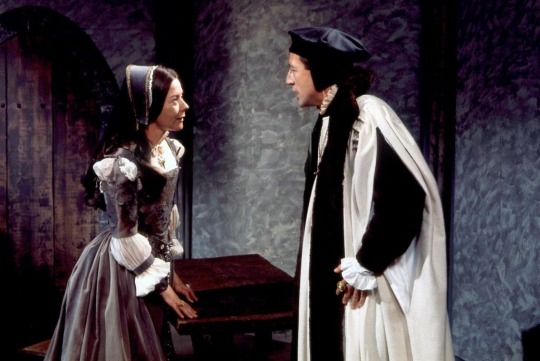
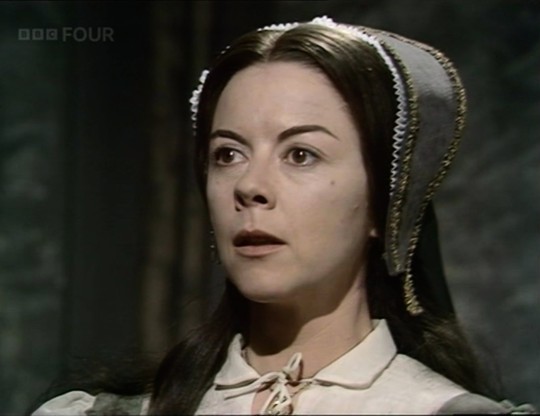
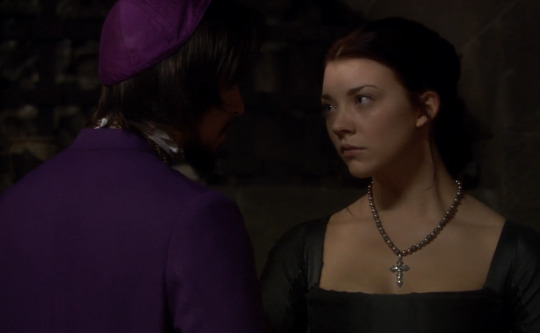
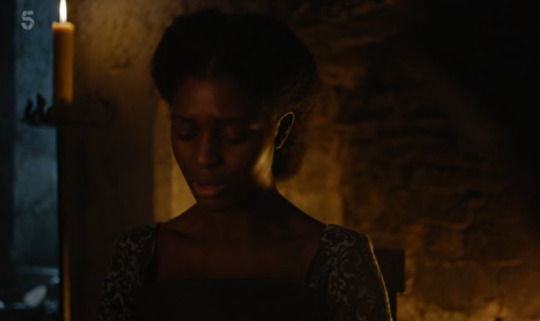
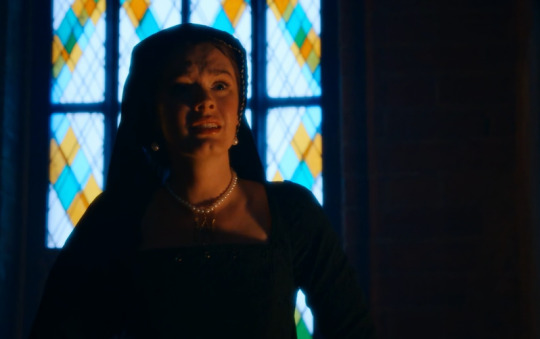
May 16, 1536 - Archbishop Cranmer Visits Anne in the Tower
"This day at dinner, the Queen said that she should go to a nunnery and is in hope of life." - William Kingston to Thomas Cromwell, May 16, 1536
"Only Anne herself, therefore, could set Henry free. What she said to Cranmer we will never know. But it was enough for the Archbishop of Canterbury to pronounce her marriage dissolved the next day. And later on the 16th, it may be by coincidence, it may not, it was determined that Anne should die, not by the agony of the fire, ut at the hands of the executioner of Calais." - David Starkey, Six Wives: The Queens of Henry VIII (2001)
"Did the archbishop hint at life in return for compliance? Did Anne confess to a consummated relationship with Percy or a third party, a quid pro quo, perhaps, for Henry not rejecting Elizabeth? There is no way of knowing what passed between the client, now archbishop, and his patron, now a condemned traitor. In all probability the meeting was what it purported to be, pastoral." - Eric Ives, The Life and Death of Anne Boleyn (2004)
"It's been suggested that [Cranmer] visited to try to convince her to 'confess to an impediment to her marriage'. This seems very probable given that that day at dinner, Anne told Kingston that she would go to a nunnery and that she was 'in hope of life'. Perhaps Cranmer offered Anne a deal: agree to an annulment and your life will be spared." - Natalie Grueninger, The Final Year of Anne Boleyn (2022)
#tudor era#dailytudors#tudorerasource#perioddramaedit#the six wives of henry viii#dorothy tutin#natalie dormer#the tudors#thomas cranmer#jodie turner smith#anne boleyn 2021#amy james kelly#blood sex and royalty#another belated post sorry!#there's sm dispute over what happened on May 16#so I just wanted to show y'all some of the opinions#Starkey and Grueninger think Cranmer visited to get her to agree to the annulment#Ives thinks it was just pastoral#and I didn't put it here but#John Guy and Julia Fox think Anne never conceded anything and Cranmer just ignored her and annulled it anyway#historiography is rly fascinating#anneboleynedit
21 notes
·
View notes
Text
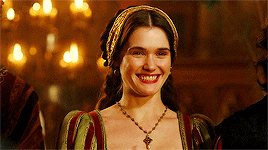



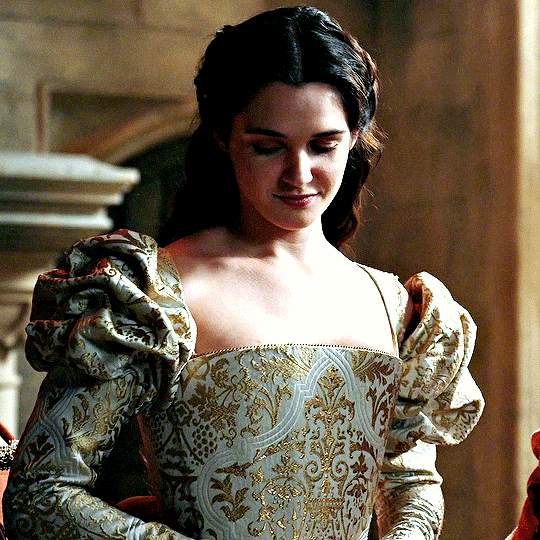
From Princess, to Queen, to Duchess
Mary Tudor (March, c. 1496; London, England - June, 1533; Suffolk, England) was an English princess, the third wife of King Louis XII of France and one of the two sisters of King Henry VIII. Mary was also the grandmother of Lady Jane Grey, who would become titular queen of England for nine days in 1553.
Mary’s father, King Henry VII, betrothed her to Archduke Charles —later Holy Roman Emperor, Charles V — in 1507. In 1514, however, political tribulations caused King Henry VIII to renounce such engagement and arrange a match between his beautiful, charming and yound sister and Louis XII, the sick and french monarch of 52. Since Mary was already in love with Charles Brandon, the first Duke of Suffolk, she made Henry promise that after Louis died she would be allowed to choose her next husband.
The marriage with the french king took place on Octouber of 1514, and Mary performed her role as wife and royal consort with kindness and dedication until he died on January of the following year. Before Henry or the new King of France, Francis I, could use her as a pawn in another political arrangement, Mary secretly wed Suffolk in Paris, probably in late February. Henry VIII was infuriated at the news, but eventually the pair regained the king’s favour, with Suffolk paying him a large sum of money and perhaps with the help and intercession of Cardinal Wolsey.Mary and Charles had four children, two daughters and two sons: ⇒ Henry Brandon (11 March 1516 – 1522); ⇒ Lady Frances Brandon (16 July 1517 – 20 November 1559), married to Henry Grey, 3rd Marquess of Dorset, and mother to Lady Jane Grey; ⇒ Lady Eleanor Brandon (1519 – 27 September 1547), married to Henry Clifford, 2nd Earl of Cumberland; ⇒ Henry Brandon, 1st Earl of Lincoln (c. 1523 – March 1534).
Mary had enjoyed unprecedented freedom during her teenage years at her brother's court. Just fourteen when her father, Henry VII died, she spent the next five years almost completely unchaperoned, encouraged to participate in every event, celebration and feast, each planned to display the opulence of the english royal family. She shared Henry's exuberance for spectacle and, for some time, was one of the central ladies of the court, admired and sociable. Like him, she loved dancing, masques, and parties; they were also very close, with the princess being the apple of the king's eye. It's rumored that Henry's famous warship, the Mary Rose, was named after both his favorite sister and his only daughter with Catherine of Aragon.
Upon her arrival in France, Mary was proclamed, by the Venetian Ambassador, to be "handsome and well favoured, grey-eyed; slight, rather than defective from corpulence, and conducts herself with so much grace, and has such good manners, that for her age of 18 years—and she does not look more—she is a paradise." She was particularly admired by her contemporaries for her long red hair, which she had inherited from the Plantagenet lineage through her mother, Elizabeth of York, who had also been an celebrated beauty.
After her second marriage, the Duchess of Suffolk lived a quiet life in the country, retired from court, although she had been know to have attended the famous Field of the Cloth of Gold at Guines, near Calais, in 1520. Often referred to as the French Queen, she was known to dislike Anne Boleyn and in defiance of her brother was to prove a firm supporter of her sister-in-law, Catherine of Aragon, in the matter of Henry VIII's annulment of his marriage to his first wife.
Mary visited London for the last time to celebrate the wedding of her eldest daughter, Lady Frances Brandon, to Henry Grey, Marquess of Dorset, in 1533. After suffering failing health for some years, Mary Tudor died on 25 June 1533 at the age of thirty-eight at Westhorpe Hall, Westhorpe, Suffolk, possibly of cancer. Henry VIII had requiem masses sung at Westminster Abbey for the repose of her soul and she was given a magnificent funeral, which her husband did not attend. Her body was interred at the Abbey of Bury St Edmunds. The Duke of Suffolk quickly remarried again, in that same year, to his fourteen-year-old ward, Katherine Willoughby (1519–1580), suo jure Baroness Willoughby de Eresby. Katherine had been betrothed to his eldest surviving son, Henry, Earl of Lincoln, but the boy was too young to marry, and Charles, to eager to add the heiress fourtune to his own.
#tudor dynasty#tudor queens#tudor history#tudor era#tudorqueens#the tudors#mary tudor#henry viii#elizabeth of york#charles brandon#tudor england#tudor period#tudor women#english royalty#house of tudor#medieval england#english history
48 notes
·
View notes